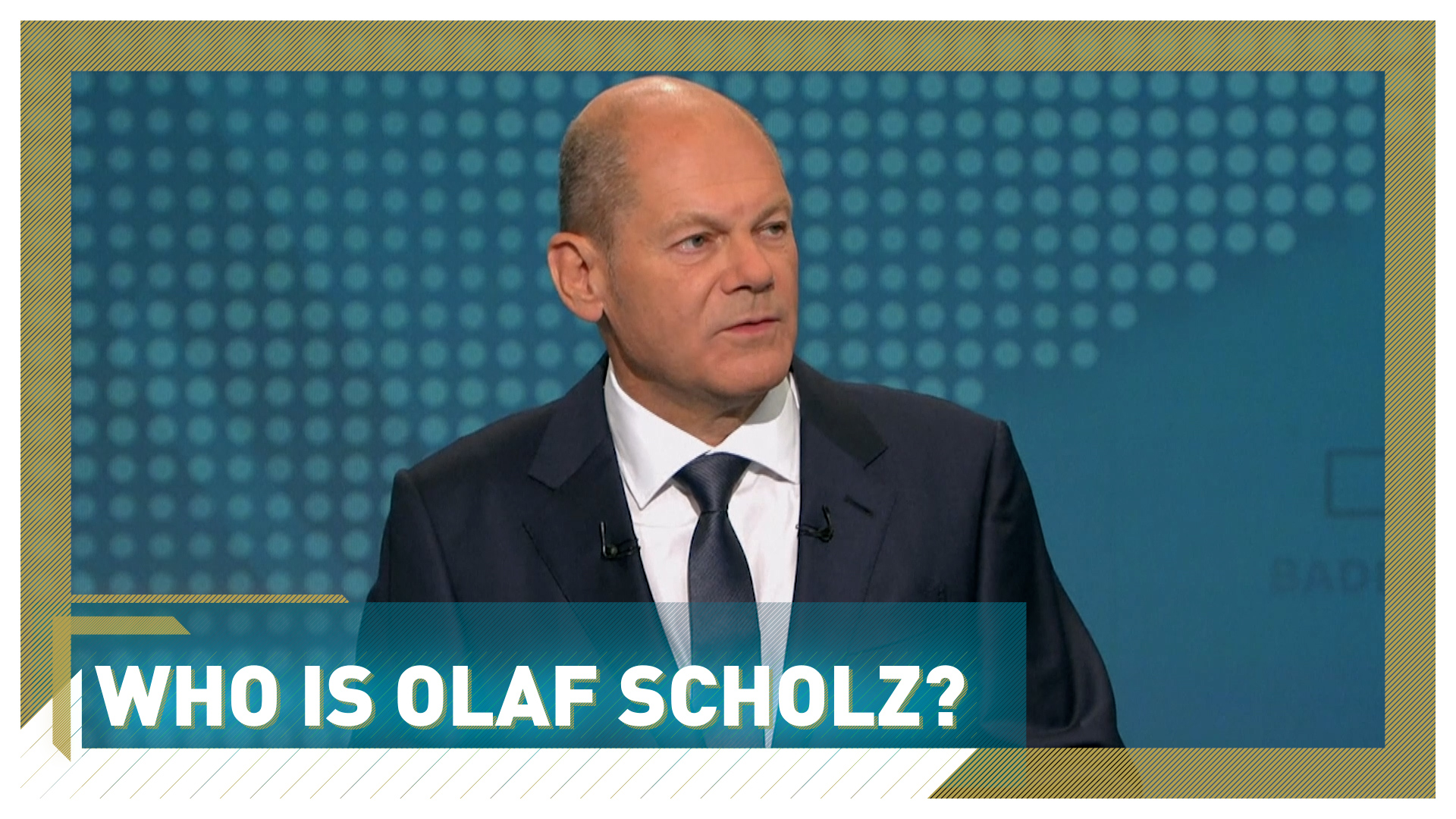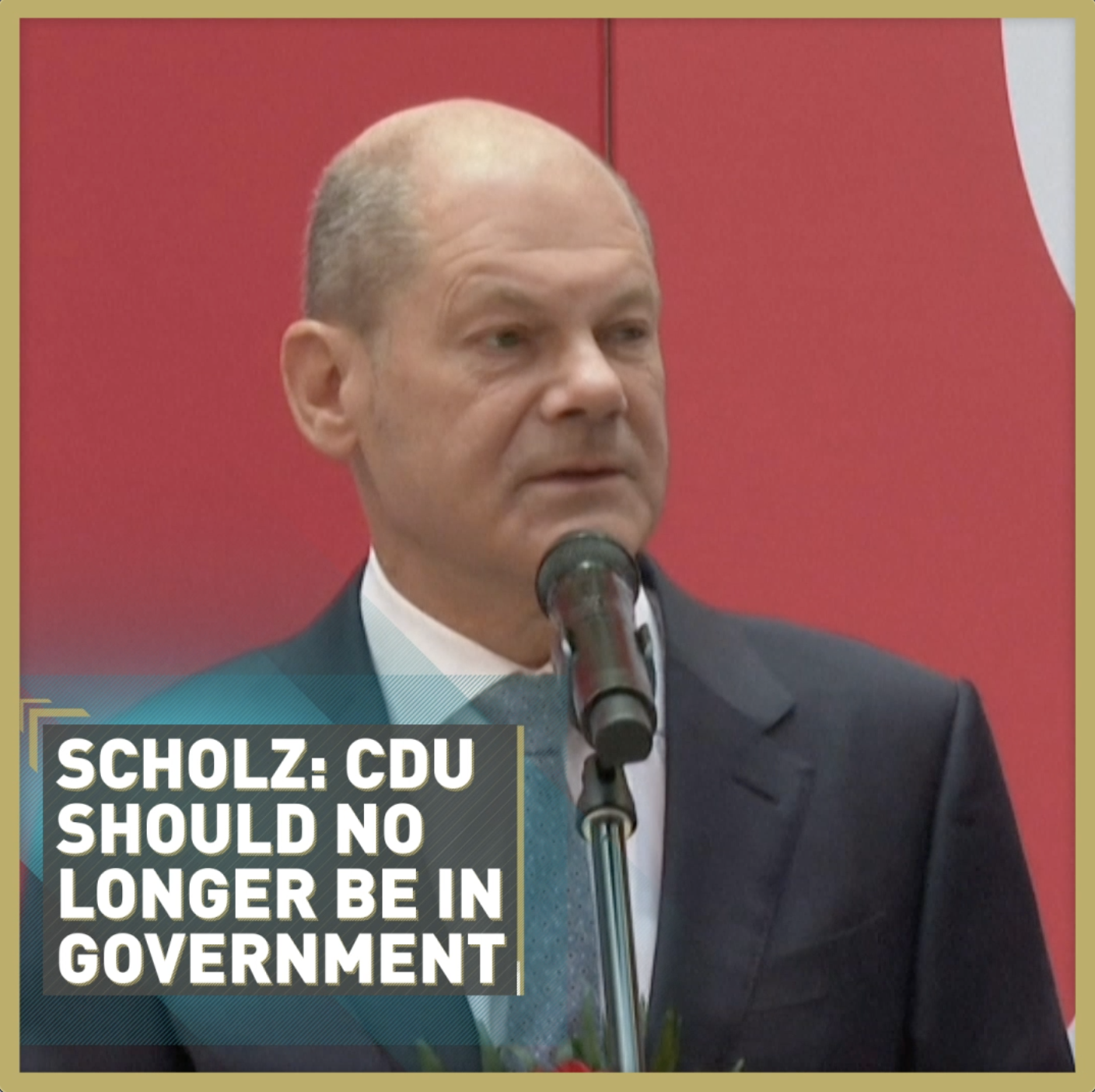
Social Democratic Party (SPD) leader and top candidate for chancellor Olaf Scholz holds a bouquet of flowers at their party leadership meeting. /REUTERS/Wolfgang Rattay
Social Democratic Party (SPD) leader and top candidate for chancellor Olaf Scholz holds a bouquet of flowers at their party leadership meeting. /REUTERS/Wolfgang Rattay
The morning after the narrow election victory for Germany's Social Democrats (SPD), their chancellor candidate, Olaf Scholz, addressed a room full of supporters and journalists.
"The voters have spoken," said Scholz began, holding a big bouquet of flowers and wearing a big, broad smile.
His center-left party managed to pull in 25.7 percent of the votes in Sunday's federal election, seen by some observers as a generational shift in Germany. Outgoing Chancellor Angela Merkel's long-standing center-right Christian Democratic Union (CDU) achieved their worst election results ever with 24.1 percent of the vote.
02:12

"The CDU have not only lost votes," Scholz continued, "but they have in fact received the message from the citizens that they should no longer be in the government but in the opposition."
But for the SPD to become the next government, they will need to form a coalition, and Scholz knows who he wants to ally with.
READ MORE
Full coverage of German elections
Auf Wiedersehen Mutti
China and Germany's car connection
"They [the voters] strengthened three parties – the Social Democrats, the Greens [14.8 percent, up from 9 percent in 2017] and the Free Democrats [11.5 percent, up from 10.7 percent in 2017] – so this is the visible mandate the citizens of this country have given: These three parties should lead the next government."
00:43

The 63-year-old finance minister and vice-chancellor was, for much of the campaign, leading in the polls. Still, his main rival, the CDU's leader and chancellor candidate Armin Laschet, began to catch up when his predecessor Merkel joined him on the campaign trail.
Ultimately Laschet failed to close the gap, with many citing mistakes he made during the campaign and the public's lack of trust in his ability to run the country.
Yet Scholz is not without fault. He has had to contend with allegations of corruption and mismanagement around the Wirecard scandal, one of the largest corporate fraud scandals in German history, allegations he has denied.
Should he become chancellor, Scholz has signaled his intention to strengthen the European Union while promising both NATO and the U.S. that Germany's steady transatlantic relations would continue under his watch.

